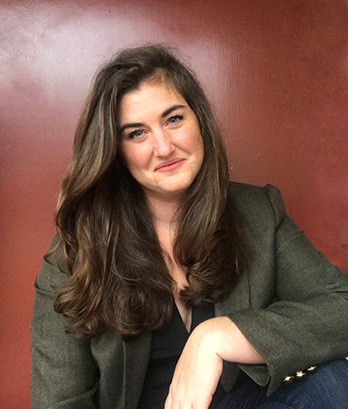While battlefield violence in inter-state and civil wars is at the lowest level it has ever been, everyday violence and non-state violence are not declining. Criminal and terrorist organizations alike are finding new revenue streams, new tactics and new allies to help them in their aims. Kate Petrich, a security scholar with a focus on terrorism and organized crime, is studying these organizations to find ways to combat them more effectively.
This passion for politics is a life-long trait – growing up, attending rallies and protests with her parents was a regular family activity. After the terrorist attacks of September 11th, 2001, her political passion became more focused on service; she planned to enlist in the US Marines after high school, but ultimately decided to attend University of San Diego, where she double-majored in History and Political Science. “Political science lit a fire in me,” Petrich says, “ I realized you didn’t have to be in the military, you didn’t have to be a police officer, what I thought of as being the front-line, to work on these issues.”
After graduating with honors, Petrich continued her education with a Masters in International Relations in 2010, also at USD. During this time she contributed as a researcher to the Justice For Mexico Project, part of the Trans-Border Institute, where she tracked and documented casualties in the drug war by combing Spanish-language Mexican news sources.
Today, her doctoral research focuses on state-disrupting criminal and terrorist organizations, tracking their shifting tactics and resources to help devise better means to combat them. “Governments around the world spend a huge amount of time, energy and money on trying to figure out how to deal with disruptive non-state actors. My research deals with how we can incorporate that into our policy making.”
When not working on her research, Petrich enjoys teaching introductory International Relations courses for undergrads, where they often have their first forays into global politics. That being said, when she completes her PhD later in 2019, she hopes to find a position in industry, or with a government think tank with a strong international component: “My dream is to be able to continue doing fieldwork and research, but in a professional setting. I feel like I have a strong sense of mission, and I still really want to serve in some fashion.”

